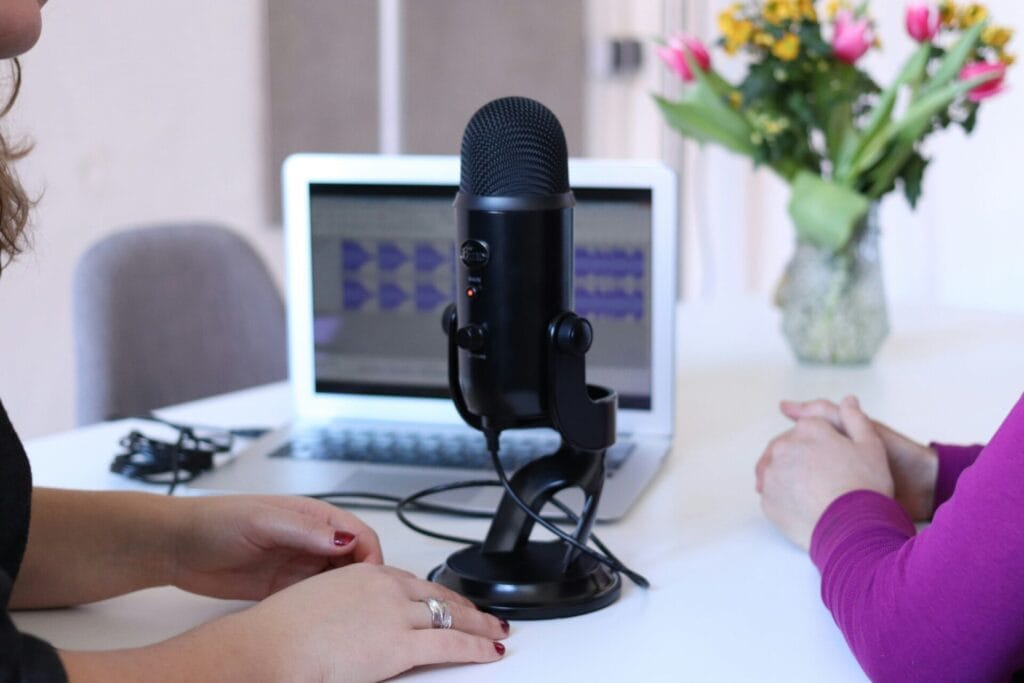
Key takeaways
- Journalism degrees offer writing, editing, and media skills
- Build a portfolio through student publications
- Internships are key for entering the industry
One of the questions you often get asked when starting at university is ‘what do you want to do with your degree?’, and a lot of the time, you don’t have a clear answer yet. Specifically for the new wave of journalism students, it is completely okay for you to be unsure of what your future career looks like, and to help, I have conducted a list of what a journalism degree can do for you and where you might end up.
You may have started your course wondering if news journalism is all there is, but journalists are all around us, in roles you may not have expected…
Combining your interests with work
A great way to decide what kind of career you want is to combine your random interests with what drives passion in your work. For instance, I love to cook and have even started posting recipes and food blogging, which not only allows for me to learn new skills and build my digital footprint, but it also means I can integrate hobbies into my work.
You might be into sports, music, travelling, so why not base your career off something you’re already passionate about? You could be the commentator for your favourite football team, write gig reviews for that cool band, and even go to the other side of the world to tell people about how great the beaches are!
Imagine your favourite glossy fashion magazine, and it was designed by no one other than…yourself! And for more niche interests, you may be interested in the world of detectives and fighting injustices – the best job for you could be a court reporter or investigative journalist. Investigative journalists often do in-depth research trying to seek out and expose the scandals the public eye are unaware of – a great example of this is the Post Office scandal (an incredible story).

Get inspiration from other successful journalists
Everybody has someone to look up to, someone who they would wish they could be like when they grow up – and likely still do! There are hundreds of inspirational journalists in today’s society that represent all the values needed in a world of news. A great example of this is photojournalist Christina Assi from Lebanon.
She grew up in the aftermaths of the civil war, which inspired her to document the kind of stories you wouldn’t necessarily hear or see. She unfortunately lost her leg after a bomb strike but used it to teach future journalists the importance of safety and honour the heroic lives that have been lost reporting combat.
You also may be lucky enough in your time at university to have guest speakers that explain how they got into their current career and possibly even have positions for placements, so always make a good impression! Guest speakers highlight potential career opportunities that you may not have considered, or didn’t know existed. Learn how they address their audiences and how to write technically but effectively – you never know what kind of topics you’ll be reporting.
Endless jobs inside the world of social media
To be on top of your career, you also need to be on top of the trends. You may not realise it but the abilities you have to create posts or make a TikTok or even write a review online, are all skills needed to be a successful journalist.
We are in a perfect era of publication where social media grows and grows every day. Nowadays, no matter what you are doing in your career, social media will be a big factor. Thanks to growing apps such as TikTok, X, Instagram, you’ll be able to integrate journalism skills such as editing, online writing and photography skills into posts, blogs and promotional videos. These apps are also perfect for finding stories – half of the events that go on in the world are only well known and popular because someone somewhere is always documenting it and sharing to followers.

Get to know the NCTJ
A great way to get started with the process of choosing your career is getting to know the NCTJ (National Council for the Training of Journalists). The NCTJ is a training course where you can receive your accreditation and get recognised as a respected journalist by future employers. If you’d like to find out more about your future in journalism, the NCTJ website has some great information on it.
Top jobs you can do with a journalist degree
A journalism degree opens up a world of possibilities, combining creativity, storytelling, and investigative skills. Here are some exciting career options to consider:
1. News Reporter
News reporters cover breaking stories, delivering accurate and timely information to the public. You may work for newspapers, TV channels, or online platforms, attending press conferences, interviewing sources, and writing articles. Starting as a junior reporter or trainee is common, often through graduate schemes or internships. Completing an NCTJ qualification can enhance your credibility.
- Potential Salary: Entry-level roles start around £22,000, while experienced reporters can earn up to £45,000.
2. Broadcast Journalist
As a broadcast journalist, you’ll report on news stories through television, radio, or digital channels. Tasks include conducting on-camera interviews, editing video packages, and scripting reports. Gaining hands-on experience through student media or community radio stations is valuable. A postgraduate diploma in broadcast journalism can also help you stand out.
- Potential Salary: Ranges from £24,000 to £60,000+ for established journalists.
3. Investigative Journalist
Investigative journalists conduct in-depth research to uncover hidden stories, such as corruption or social injustices. This role often involves months of research, public record analysis, and interviews. Building a strong portfolio through freelance or local stories is a good starting point. Consider specialising in data journalism or investigative reporting through additional training.
- Potential Salary: Typically £30,000 to £60,000, with some high-profile roles exceeding this.
4. Magazine Writer
Magazine writers specialise in lifestyle, fashion, travel, or niche interests. They create engaging feature articles and often collaborate with photographers and designers. Gaining experience through student publications or freelance work is beneficial. Many magazine writers begin as editorial assistants and progress through networking and portfolio building.
- Potential Salary: Entry-level roles pay around £20,000 to £28,000, with senior writers earning upwards of £45,000.
5. Digital Content Creator
In the era of digital media, journalism graduates are well-suited for content creation roles. You may produce blogs, videos, podcasts, or social media content for brands or media outlets. Building your online presence through personal projects and showcasing multimedia skills can open doors. Courses in video editing, SEO, and digital marketing are advantageous.
- Potential Salary: Ranges from £20,000 to £40,000, with influencers and successful creators earning significantly more.
6. Photojournalist
Photojournalists capture powerful images that tell stories. You may cover breaking news, cultural events, or human-interest pieces. Developing a strong photography portfolio and submitting work to local media can kickstart your career. Many photojournalists work freelance or collaborate with agencies like Getty Images.
- Potential Salary: Typically between £25,000 and £50,000, with experienced photographers earning more.
7. Communications Officer
In this role, you’ll manage internal and external communications for organisations, write press releases, and handle media relations. Journalism graduates excel in storytelling and crisis communication. Starting in PR agencies or through graduate schemes can lead to senior roles in corporate communications.
- Potential Salary: Starting salaries are around £25,000, with experienced officers earning up to £50,000.
8. Sports Journalist
Sports journalists cover events, provide commentary, and interview athletes. Whether working for broadcasters, newspapers, or digital platforms, you’ll need excellent knowledge of the sports industry. Gaining experience through local clubs or university sports reporting is a great entry point.
- Potential Salary: Salaries range from £22,000 to £50,000, with top broadcasters earning significantly more.
9. Editor
Editors oversee content production, ensure articles meet high standards, and manage teams of writers. Starting as a sub-editor or assistant editor is common. Gaining years of experience and demonstrating strong leadership and editorial judgment is key to progressing in this role.
- Potential Salary: Junior editors earn around £30,000, while senior editors can earn over £70,000.
10. Social Media Manager
As a social media manager, you’ll create and curate content for brands, monitor trends, and engage audiences across platforms. Journalism graduates excel in storytelling and brand communication. Developing experience through internships, freelance projects, or managing your own channels can help you break into this field.
- Potential Salary: Entry-level positions start at £24,000, with experienced managers earning up to £50,000.
11. Court Reporter
Court reporters provide accurate coverage of legal proceedings, often working for newspapers, broadcasters, or specialist legal publications. You’ll need strong legal knowledge and shorthand skills, which can be gained through an NCTJ qualification. Many start in local court reporting before progressing to national roles.
- Potential Salary: Typically ranges from £22,000 to £45,000.
12. Travel Writer
Travel writers document their journeys and provide destination reviews for magazines, newspapers, or blogs. Combining writing skills with an engaging personal style is key. Freelance writing and pitching stories to publications are common ways to get started.
- Potential Salary: Varies widely from £20,000 to £50,000, with successful freelancers earning more.
A journalism degree is not just a pathway to traditional newsrooms; it’s a versatile qualification that can lead to many creative and impactful careers. The skills we develop in researching, writing, and storytelling can help us go in all different directions in the job market, which is a fun thought.
If you’re still considering whether or not to do a degree in journalism, find out what it’s like studying it in our day of a life series.
Authors
-
Hi, I'm Zoe and I'm studying Journalism in Nottingham! I love pop culture, food blogs and emotive news. My dream is to have my own podcast one day and meet interesting people from all over the world.
Top tip for students? Take time for social activities and nights out, you deserve it!
View all posts
-
Aminah is a dedicated content expert and writer at Unifresher, bringing a unique blend of creativity and precision to her work. Her passion for crafting engaging content is complemented by a love for travelling, cooking, and exploring languages. With years spent living in cultural hubs like Barcelona, Sicily, and Rome, Aminah has gained a wealth of experiences that enrich her perspective. Now based back in her hometown of Manchester, she continues to immerse herself in the city's vibrant atmosphere. An enthusiastic Manchester United supporter, Aminah also enjoys delving into psychology and true crime in her spare time.
View all posts





